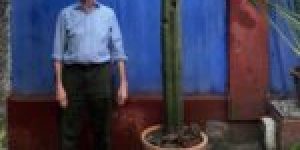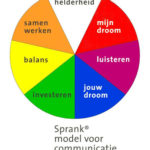The Vrije Universiteit And South Africa ~ A ‘New’ History For A ‘New’ South Africa
No Comments yet Historians need not worry about a lack of work in the future. There is always a past in the future. And their duty is to study that past, sine ira et studio, as Tacitus put it nearly 2000 years ago. The study of history, as my colleague and eminent historian Van Deursen likes to say, is to do justice to the dead, our fellow men, and at the same time to always be aware of the Biblical warning: you will be judged by the same measure. Historiography is not about blaming the past for our contemporary problems, nor about finding arguments there to bolster our political or religious plicies and philosophies. Nevertheless, everybody agrees that the knowledge of history is useful. A society without history is like an individual with loss of memory, walking like a blind person on unknown territory, doomed to fall step after step. Everybody also accepts that historical knowledge changes; history is a never ending debate, as Pieter Geyl has taught. So we do understand and accept that a ‘new’ South Africa needs a ‘new’ history. Is there a place in that new history for the Netherlands, for Dutch historiography, for the historians of the Vrije Universiteit (VU)?
Historians need not worry about a lack of work in the future. There is always a past in the future. And their duty is to study that past, sine ira et studio, as Tacitus put it nearly 2000 years ago. The study of history, as my colleague and eminent historian Van Deursen likes to say, is to do justice to the dead, our fellow men, and at the same time to always be aware of the Biblical warning: you will be judged by the same measure. Historiography is not about blaming the past for our contemporary problems, nor about finding arguments there to bolster our political or religious plicies and philosophies. Nevertheless, everybody agrees that the knowledge of history is useful. A society without history is like an individual with loss of memory, walking like a blind person on unknown territory, doomed to fall step after step. Everybody also accepts that historical knowledge changes; history is a never ending debate, as Pieter Geyl has taught. So we do understand and accept that a ‘new’ South Africa needs a ‘new’ history. Is there a place in that new history for the Netherlands, for Dutch historiography, for the historians of the Vrije Universiteit (VU)?
In the old South Africa, there was a place for the Dutch historians, a modest but constructive place. Cape history cannot be studied without the Dutch archives, nor without knowledge and understanding of Dutch history, society and culture; the same holds for important aspects of the history of the Boer Republics and the history of Afrikaner religion and culture (literature etc.). Three generations of Afrikaner academic historians either originated from the Netherlands or had studied there – to start with the first generation: Godee Molsbergen and the Flemish Blommaert, and later Dirk Bax; next, the generation of J.P. van der Merwe, F.J. du Toit and F.A. van Jaarsveld, and then the third generation: Hermann Giliomee, Ben Liebenberg, Piet van der Schyff and Fransjohan Pretorius, to name but a few. All this means, additionally, that in the old South Africa there was a modest place for a small number of Dutch historians, as a promotor, colleague, or critic. And sometimes as a supplier of commemorative articles, such as VU historians A.A. van Schelven and H. Smitskamp in 1952 – and myself too, recently, publishing an article on the relations between Abraham Kuyper and president Paul Kruger in Die Kerkblad.
To be honest, the department of history at the VU, founded in 1917, never made an important contribution to the Dutch-South African cooperation. Van Schelven, professor at the VU between 1917 and 1945, was actively pro-Boer, representing the VU at the board of the Chair for Afrikaans language, literature, history and culture at the University of Amsterdam from 1933 onwards; he even paid a five weeks’ visit to South Africa in 1933. His successor H. Smitskamp was also interested in South Africa. He was a member of the NZAV – later on succeeded by the economic historian W.J. Wieringa. One of Smitskamp’s books was published in Afrikaans, and he even gave courses on South African history. M.C. Smit, who taught medieval history and above all philosophy of history and Wijsbegeerte der Wetsidee, made a lecturing tour though South Africa in the 1960s. All of them had contacts with some South African colleagues – I know a story about Smitskamp, walking through Amsterdam with the Stellenbosch historian P.J. (‘Piet Vark’) van der Merwe in 1952 – and there was a small number of South African historians in their classes, but most went to Leiden or to the University of Amsterdam.
My own initial contacts with South African history date back 40 years, when I was preparing myself for a stay as a student in Pretoria to do a research year for my MA thesis. An Utrecht-trained historian in colonial history, I was and still am fasinated by South African society and its developments. Since then, I have discovered and also tried to apply the following three contributions to South African historiography:
* Writing contributions on South African history, to place it under a wider horizon. South African historiography tends to be parochial, placing the Cape in the centre of the world. My perhaps most influential study (at least: my most widely read study, for it was for a while included in the curriculum of many universities!) is a chapter on social stratification in the 17th and 18th centure Dutch Cape, published in Elphick and Giliomee, The shaping of South African society (1979). More recent contributions on the same subject include articles ‘Between Amsterdam and Batavia’ (Kronos 1998), ‘Ad fontes. Over Samuel Elsevier, zijn vrouwen en zijn slaven’ (Historia 2000) and ‘Neerlands India. De wereld van de VOC: calvinistisch en multicultureel’ (Historia 2002).
* Writing critical reviews of the Yearbook of South African History and many other studies on South African history. Some of these studies are impressive, many are solid but not very stimulating nor well written, some are evidently disappointing.
* Training a new generation of historians, Dutch as well as South African. I was happy to be given the opportunity to be the promotor of Bart de Graaff; he studied the Mythe van de stamverwantschap (1993), and De Kaap de Goede Hoop. Een Nederlandse Vestigingsnederzetting, [Stellenbosch] 1680-1730 (1999), by Ad Biewenga. Biewenga’s research has to be compared with other products of mine out of predilection for the history of the Dutch East Indian Company such as Niemijer, Calvinisme en koloniale stadscultuur, Batavia
* 1619-1725 (1996), My Indisch Sion (2002), and my two source publications on late 18th century Cape history, the Swellengrebel Correspondence (1982) and Hendrik Cloete, Groot Constantia and the VOC (2003).
I have also stimulated and trained some representatives of the younger and newer generation of South Africa. In 1984, I was extramural promotor to Wayne Hendricks, the first doctor in history at the University of the Western Cape (UWC). Since 1999 I have been a member of the TANAP committee, the Leiden University/National Archives VOC project, funded by the Dutch government, UNESCO, etc. My specific task is to serve as a handy boy for the archival cooperation research and publication project, and – an even more specific part of the project- to find and train a new generation of South African scholars, specialists in the history of the VOC period. I will not bother you with the problems I have encountered within that framework. I am proud that out of the small group of South African participants, one, R.S. Viljoen, a former UWC student and a lecturer at UNISA, last year obtained his doctor’s degree at Leiden University, with a thesis about the fascinating story of Jan Paerl, a Swellendam Khoi prophet and rebel who predicted the end of the world, on the 28th of October, 1788.
It is a privilege to be coaching and counselling these young South African historians, as it is a pleasure to organise bilateral congresses for historians from the Nehterlands and South Africa, like in 1997, 2000, 2002 and – hopefully – in 2006 again.
Moreover, at the moment academic historians in South Afirca are struggling to survive. University careers are scarce and insecure. The traditional contacts with the Netherlands have been seriously hampered due to the intellectual boycott imposed by the Netherlands up to 1990, the competition from the better South African universities and the attractive offers for stipendia etc. from many other countries. Also, some people harbour suspicions about the old colonial Dutch and especially Christian-National Kuyperian Vrije Universiteit. Is there really a place in this South African future for VU historians?
You May Also Like
Comments
Leave a Reply








